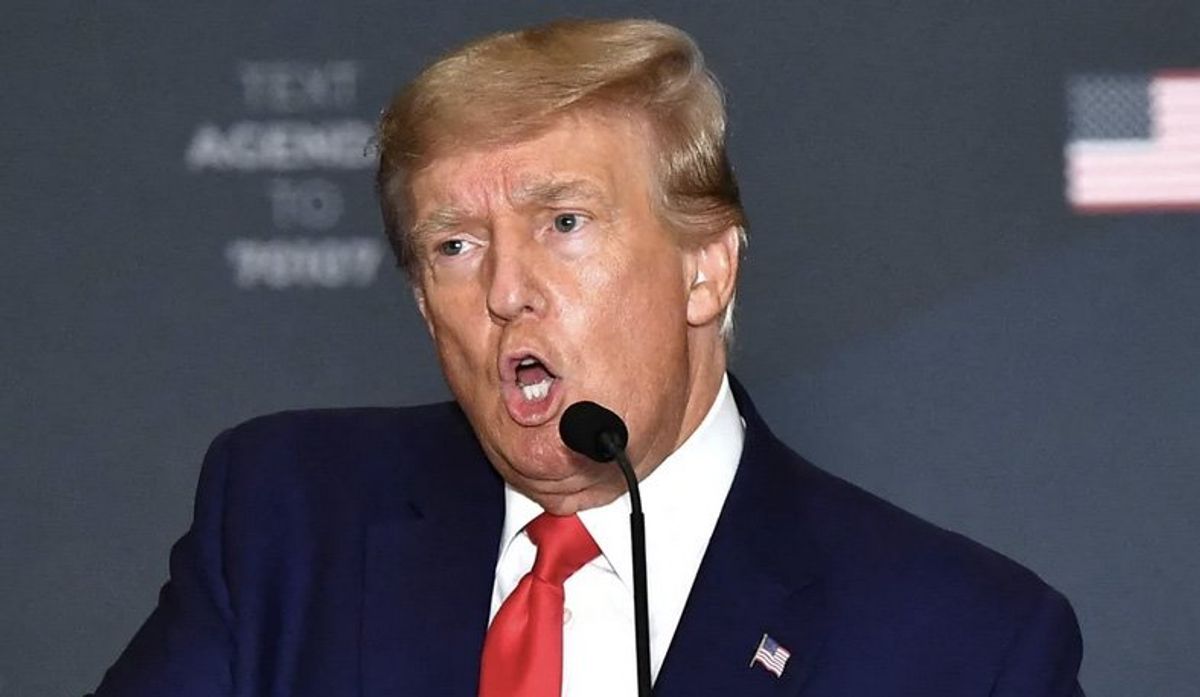
Former President Donald Trump is now attempting the "First Amendment" defense as the reason he had the right to attempt to overturn the 2020 election and encourage an attack on the U.S. Capitol.
Trump is charged with as much, but the documents filed shortly after midnight Tuesday morning also claimed that the indictment from the Justice Department has a "failure to state an offense." It's legalese for, "You didn't say I broke any laws."
"To adequately allege an offense, a specification must (1) notify the accused of the offense charged, (2) contain the elements of the offense either expressly or by fair implication, and (3) together with the record of trial, bar any subsequent prosecution in the event of acquittal or conviction," explains Daniel Conway & Associates' website.
Legal analyst Allison Gill asked if this was the deadline for pretrial motions. Lawfare's Anna Bower, who posted the filings online here and here, explained that indeed, midnight was the cutoff, leading to everything Trump's lawyers could find to challenge his indictment.
A third pre-trial motion demands Judge Tanya Chutkan strike “inflammatory” allegations from the DOJ's "indictment—specifically, allegations related to actions of 'independent actors' at the Capitol on January 6, 2021," Bower pointed out.
The final filing, number four, is Trump's motion to dismiss the case on "selective and vindictive prosecution" grounds. He had been saying that he would file such a motion.
Legal analyst Bradley Moss responded to the filings with a gif of Justin Timberlake singing "cry me a river."
He also attacked the First Amendment motion, saying, "This motion is disturbingly poorly framed. Way too abstract an approach on constitutional grounds and does not remotely explain how the alleged criminal acts fall within First Amendment protection. There were legitimate First Amendment arguments to make but I am not impressed by this motion."
Before that motion was officially filed, DC lawyer George Conway remarked on Threads: "To be honest, I think Trump‘s best first amendment argument is to say, hey, at this point, who *isn’t* a witness against me?




